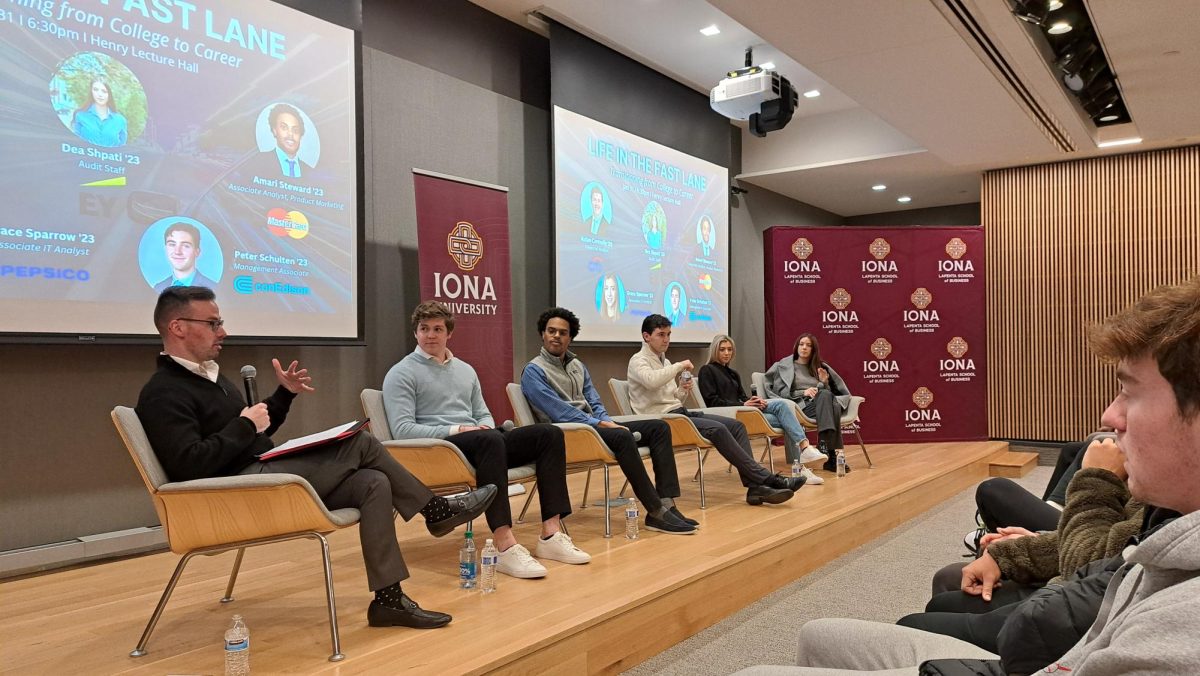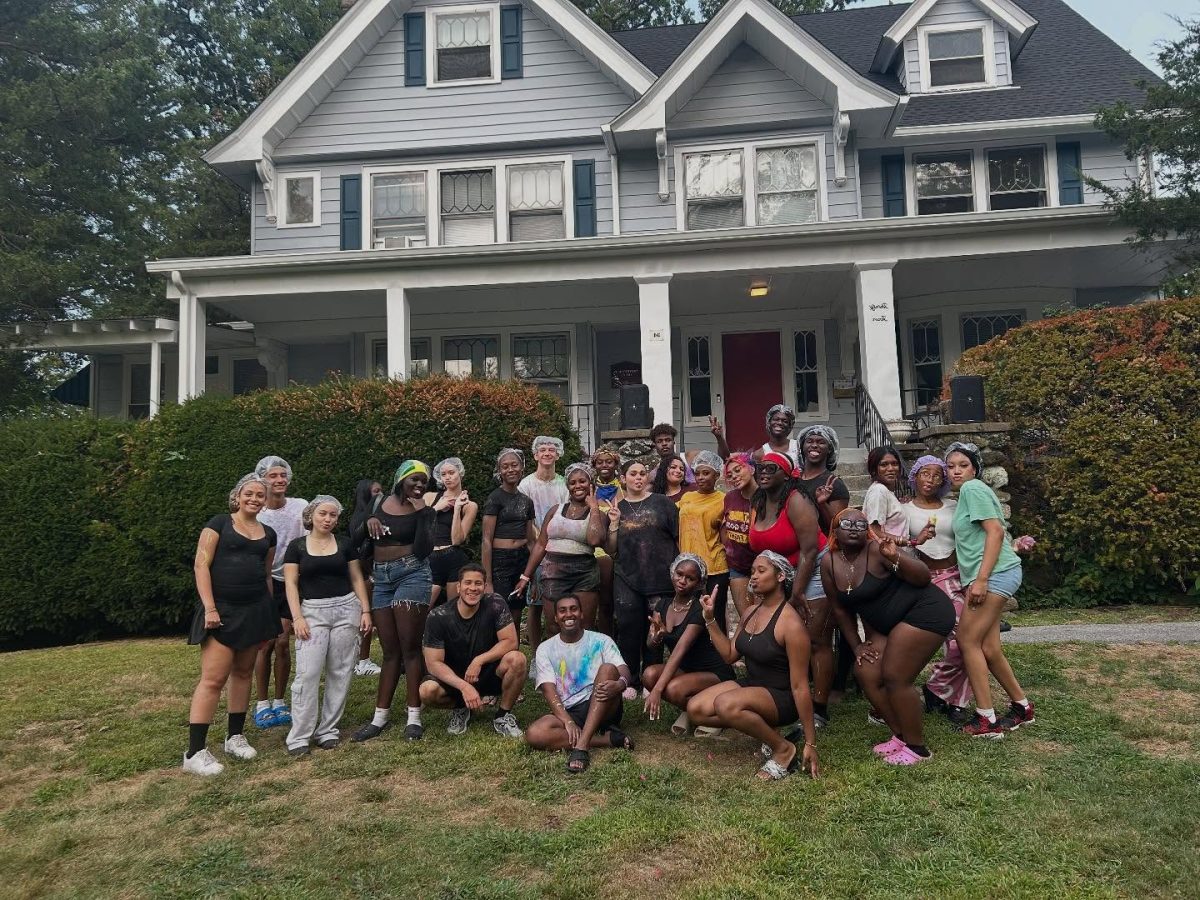While college experiences tend to vary, what remains a common link is the murkiness of expectations that typically characterize the college to career transition. On Jan. 31, a panel of Iona alumni from the Class of 2023 demystified the transition from college life to career life at the LaPenta School of Business (LSB), moderated by LSB Assistant Director of Student & Alumni Engagement, Kyle Byrne.
The stories that the panel of alumni shared all valued the creation of connections through college networking to induce career advancement.
“What helped me a lot is that I spoke to a lot of professors. Take the time after class to ask a question you have. Professors want to see you succeed,” notes alum panelist, Dea Shpati ’23.
College professors usually have background experience in the career field they lecture in and consequently can help college students forge professional connections that would otherwise be unrealized.
Building connections should not be the only focus, though. In a world where leadership through taking initiative is increasingly important, demonstrating capacity for leadership through on campus involvement is essential.
“I tried to cast a wide net with everyone I could at Iona. At the end of the day, if you’re a friendly face and you’re memorable, it will help you with things you wouldn’t even consider,” explains alum panelist Aidan Connolly ’23, who served as the former Iona Student Government Association (SGA) President.
Building leadership experience early on in college ensures a smooth transition from the college world to career world by cultivating necessary interpersonal skills like public speaking and conflict resolution.
As an upperclassman, it helps to set a benchmark for career expectations by knowing what one values from a company.
“I put all my energy into building relationships with three recruiters, and researching the companies they were from. It helped me to find three things I was interested in and not spend my energy on thousands of different jobs,” Schulten highlights in his experience with establishing a benchmark.
To have an idea of what companies to work for, one should inform personal preference through diligent background research on prospective companies before applying for a position.
Once a career begins, what does life look like from then on? Students may envision a significant increase in work and subsequently less personal time as a natural byproduct of learning the ropes of a new career, but Shpati disagrees with this image.
“If you refine your time management, you can have a successful work-life balance. You can perform at your job while going out at night with friends, as long as you know how much time you spend on each task,” remarks Shpati.
Time management is not a niche skill for work and is instead inherent to maintaining all dimensions of personal health while achieving long-term career goals.




